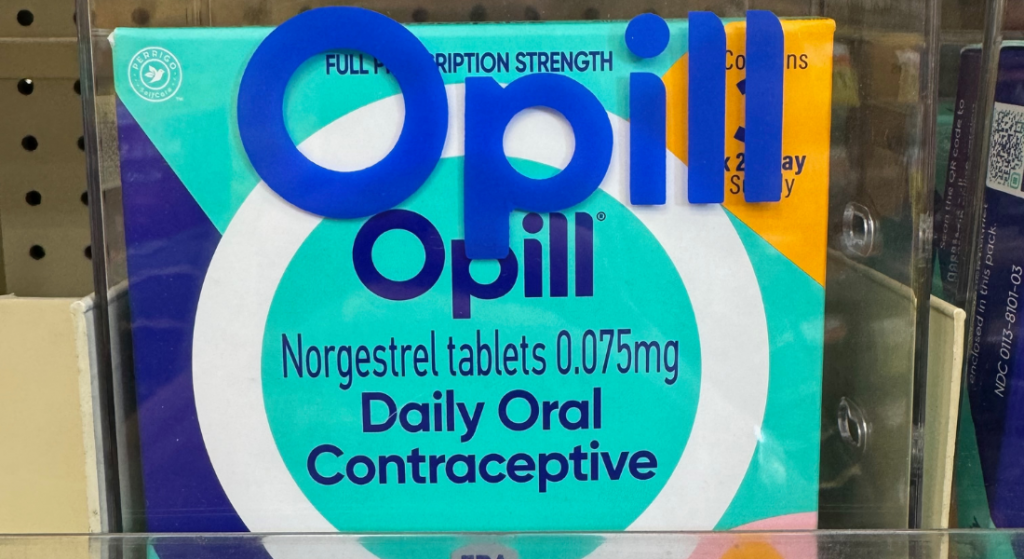
All About Condoms
Currently, condoms are the only widely available, proven method for reducing transmission of HIV and other sexually transmitted infections (STIs) during sex. Condoms work.

The Biden Administration proposed new rules designed to make getting contraception easier and less expensive. Among other things, the rule would require most private health insurance plans to cover over-the-counter contraceptive pills and emergency contraceptive pills with no co-pay. Insurance companies would also be required to offer additional prescription methods at zero out-of-pocket cost to patients.
The Affordable Care Act (also known as Obamacare) requires insurance plans to offer some version of all FDA-approved contraceptive methods with no co-pay. The rule included prescription methods—like birth control pills, IUDs, and implants—and over-the-counter (OTC) methods—like emergency contraceptive pills. (At the time it passed there were no OTC birth control pills). Under the original rule, insurance companies only had to provide OTC methods with no co-pay when a person had a prescription.
Now, we have Opill, an OTC progestin-only pill (POP) that was approved by the FDA earlier this year. A one-month supply cost $19.99. It is also sold as a three-month ($49.99) or six-month ($89.99) supply for at a slight discount. Some insurance plans covered the entire cost of Opill, but others did not. If the proposed rule is finalized, all insurance companies would be required to cover Opill with no co-pay.
The rule would also improve access to emergency contraceptive pills (ECPs). Right now, most ECPs (like Plan B and Julie) are available in pharmacies without a prescription. This instant access is important because ECPs work best when taken soon after unprotected sex. But insurance companies will only pay for ECPs if a person gets a prescription. Otherwise, ECPs cost anywhere between $20 and $50. This forces people to choose between convenience and cost. The new rule changes that by requiring insurance companies to provide ECPs with no co-pay even without a prescription.
The rule also requires insurance companies to provide patient education about OTC methods so that people understand what they have access to and how much (or little) it will cost.
There is an additional component of the new rule which could help people taking prescription birth control pills as well. While the ACA required insurance plans to provide birth control pills for no co-pay, companies could decide which brands were covered and which were not. There are over 260 brand-name and generic versions of the birth control pill on the market. They all work the same and are equally effective, but each formula is a little different. Some people find that specific brands of birth control pills have fewer side effects than others. Others choose a particular brand for added benefits like never getting a period or helping with acne.
Under the existing rule, people may have to choose between paying more for the version they want or using the ones their insurance offers for no-copay. The new rule says that all plans must cover “every FDA-approved contraceptive drug or drug-led combination product without cost sharing unless the plan also covers a therapeutic equivalent.” This will give people more, no cost options.
In a phone call with reporters, HHS Secretary Xavier Becerra said, “Since the Supreme Court overturned Roe v. Wade reproductive healthcare has been under attack. That means preventative services like contraception are more important than ever, and when healthcare plans and issuers impose unduly burdensome administrative or cost-sharing requirements for services, access to contraceptives becomes even more difficult.”
The rule is currently in a 60-day open-comment period. If finalized, it would go into effect on January 1, 2026.

Currently, condoms are the only widely available, proven method for reducing transmission of HIV and other sexually transmitted infections (STIs) during sex. Condoms work.

There’s potential good news in gonorrhea prevention as a series of studies suggests that certain meningococcal B (MenB) vaccines can reduce the risk of gonorrhea.

There is new guidance on pain management for IUD insertion and acknowledgement that providers often underestimate the pain patients feel during their procedures.

Non-hormonal contraceptive methods fall into a few categories. These include barrier methods and surgical options.

There’s new research to suggest that the birth control pill can protect female athletes from ACL tears which is one of the most common knee injuries. While this may sound far-fetched, the science behind it is very interesting.

A new study of more than 200,000 women found that women who had ever taken the pill had a 26% lower risk of ovarian cancer.

Many methods of birth control that are available today rely on hormones like those that our bodies make naturally. Hormonal methods come in many different forms—from pills to patches to shots—but all of them essentially work the same way.

Anyone who is having penis-in-vagina sex runs the risk of getting pregnant every time they have sex. Even if it’s your first time. Even if you have your period. Even if it’s a full moon and Mercury is in retrograde.
ASHA believes that all people have the right to the information and services that will help them to have optimum sexual health. We envision a time when stigma is no longer associated with sexual health and our nation is united in its belief that sexuality is a normal, healthy, and positive aspect of human life.
ABOUT
GET INVOLVED
ASHA WEBSITES
GET HELP
© 2025 American Sexual Health Association